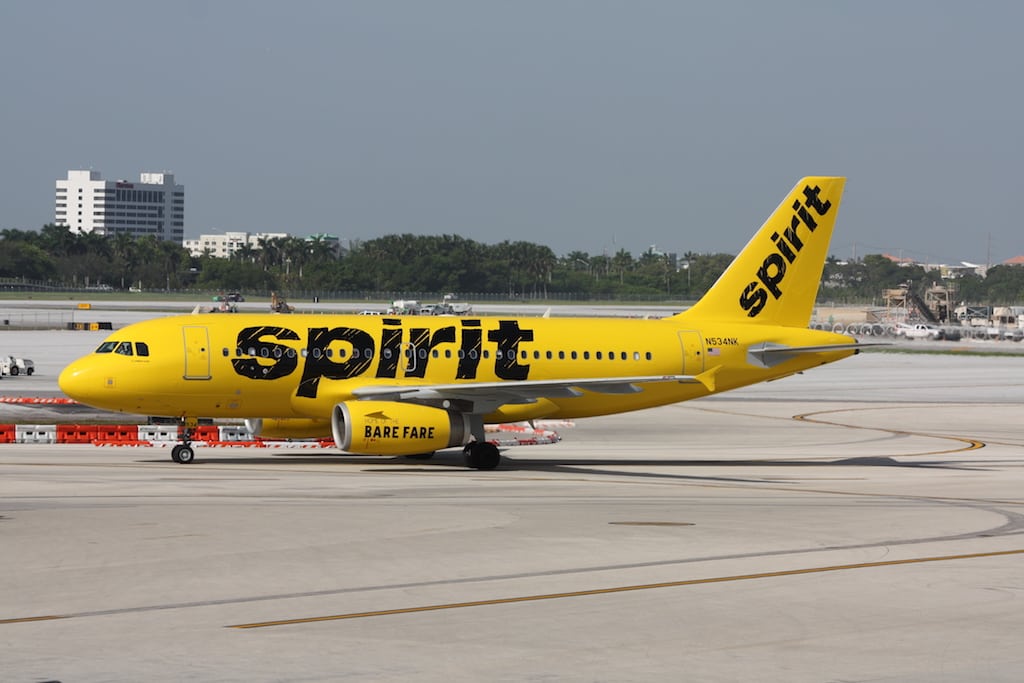Skift Take
The Spirit CEO's vision is for low fares on cramped planes that are clean and run on time. These sort of changes are heavy-lifting for a growing airline and would muffle some complaints but might not be enough to really change the airline's reputation.
Similar to what Ryanair did in 2014, when it tried to ditch its gruff relations with passengers, Spirit Airlines’ new CEO wants to give its operational performance and reputation a makeover given a torrent of consumer complaints.
Bob Fornaro, the former AirTran CEO and Spirit board member who took over for ex-CEO Ben Baldanza in January, vowed that Spirit will focus on on-time performance, which stood at around 74.5 percent in the fourth quarter, the ability to recover better from disruptions, cleaner planes and friendlier service.
“Reputation does matter,” Fornaro said during the airline’s fourth quarter and full-year earnings call February 9. “If we can provide low fares with a positive reputation” then that will mean a lot for Spirit.
Fornaro said Spirit has the “youngest fleet in America,” adding, “We want to be known for that and perhaps other things.”
Asked whether Spirit would follow Ryanair’s path in improving its reputation and attracting more business travelers, Fornaro said: “I think we are along the same spectrum perhaps of what Ryan[Air] is talking about.”
Spirit needs to focus on the basics, he said, including friendlier service, a more efficient operation and clean planes. “They need to happen every day.”
JetBlue and Southwest
Asked how Spirit would compete with the likes of JetBlue and Southwest, Fornaro said taking seats out of the plane or getting rid of bag fees is not on the agenda.
There is no clear benefit and it would be a big risk to provide more legroom by reducing the number of seats on a plane for an airline like Spirit that generates profit margins of more than 20 percent, he said. Such changes would take years and may not be successful.
Offering customers clean planes at the lowest price with the newest fleet would be a big opportunity, Fornaro said, adding, “That is part of the bargain we really haven’t fulfilled.”
Basic Economy Fares From the Big Three
As carriers such as Delta and American introduce basic economy fares to compete head-on with Spirit, Fornaro said his airline will make corresponding operational improvements and will put more emphasis on underserved midsize and smaller markets instead of reliance on flying hub to hub.
“I don’t think anyone can take all of our customers” when Spirit has a cost structure of just five cents per mile, Fornaro said.
If the legacy airlines want to compete head to head on fares “your are getting hammered because you don’t have the cost structure,” Fornaro said.
Fornaro emphasized that he doesn’t envision big changes to Spirit’s fee structure, which includes charging for bags, overhead bin space and printing boarding passes.
Spirit is generally the last airline to enter a new market and it gets the worst gates, which leads to operational challenges that the airline has to work harder to overcome, he said.
The airline will have to live with some consumer complaints, such as when passengers are angry about bag fees, Fornaro said, but the airline shouldn’t be losing their bags or subject passengers to flights with four-hour delays.
Said Fornaro: “There will be complaints that, in effect, come with the territory.”
The Daily Newsletter
Our daily coverage of the global travel industry. Written by editors and analysts from across Skift’s brands.
Have a confidential tip for Skift? Get in touch
Tags: business travel, earnings, ryanair, spirit airlines
Photo credit: Spirit Airline's new CEO, Bob Fornaro, doesn't envision getting rid of the airline's "Bare Fares" but wants to improve Spirit's reputation with passengers nonetheless. Spirit Airlines
